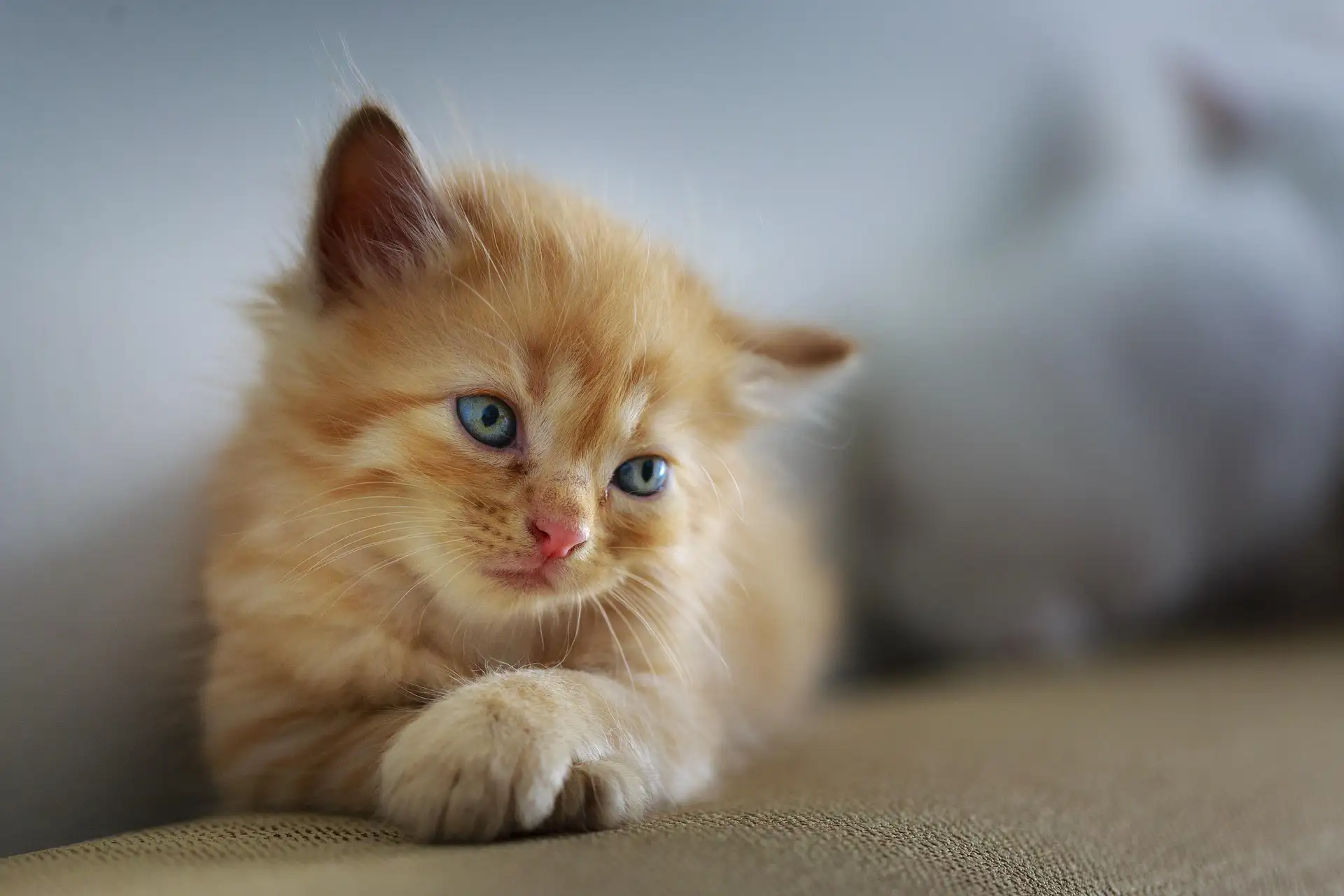Ferrets are naturally curious animals who love to explore every corner of your house. They have a unique ability to squeeze into small spaces, which makes them great at escaping and discovering new places. As a ferret owner, it’s your responsibility to create a safe environment for your pet. In this article from Clarington Animal Hospital, a Bowmanville, ON veterinarian offers some insight onto ferretproofing.
Why is Ferret-Proofing Important?
Your ferret’s safety relies on how well you prepare your home. Here are some key reasons why ferret-proofing is crucial:
- Preventing Escapes: Ferrets are known for their cleverness and ability to find ways out of enclosed spaces. By identifying and securing potential escape routes in your home, such as gaps under doors or openings in walls, you can minimize the risk of your ferret wandering off or getting lost.
- Eliminating Hazards: Ferrets are curious creatures who tend to investigate everything they come across. Unfortunately, this curiosity can sometimes lead them into dangerous situations if there are hazardous items within their reach. It’s essential to remove any toxic substances like plants or chemicals from areas where your ferret has access and ensure that choking hazards are eliminated.
- Providing Safe Play Areas: While it’s important for ferrets to have opportunities for exploration, it’s equally vital to establish designated play areas where they can engage in safe activities. Creating specific zones with appropriate toys and enrichment options allows you to control their environment while still catering to their natural instincts.
What Will You Learn from This Guide?
In this guide, we will go through the necessary steps involved in creating an environment that is friendly towards ferrets:
- Practical safety measures: Discover effective techniques for securing potential escape routes, removing hazards, and establishing safe play areas.
- Important health considerations: Understand specific dietary needs, exercise requirements, and socialization aspects that contribute to your ferret’s overall well-being.
- Maintaining a stimulating space: Explore ways to keep your ferret mentally stimulated by incorporating interactive toys, climbing structures, and other forms of enrichment into their living area.
By following these guidelines outlined in this guidebook, you’ll be able to provide an environment where your beloved pet can thrive while also ensuring their safety at all times.
Creating a Safe Living Space for Your Ferrets
Your ferret’s primary living space needs careful consideration to ensure their safety and comfort. A
multi-level cage serves as their home base, and selecting the right one is crucial for their well-being.
Cage Requirements:
- Minimum dimensions of 3m x 2m x 2m for a pair of ferrets
- Bar spacing no wider than 1 inch to prevent escapes
- Sturdy construction with secure latches
- Multiple levels with ramps for climbing and exploration
- Solid floor base to protect paws and prevent digging escapes
Bedding Selection:
- Use washable fleece liners or soft bedding materials
- Avoid cedar and pine shavings – these release harmful oils
- Replace bedding weekly or when soiled
- Place sleeping areas away from food and litter zones
- Add cozy hammocks and sleep sacks for comfort
Temperature Management:
- Keep living space between 15-24°C
- Place cage away from direct sunlight
- Avoid drafty areas near windows or doors
- Install a thermometer to monitor temperature
- Add cooling options during summer:
- Ceramic tiles for cool resting spots
- Elevated platforms for better air circulation
- Fresh water bottles changed twice daily
Your ferret’s cage needs regular maintenance to stay safe and comfortable. Check bars and latches daily for signs of wear or damage. Position platforms at safe heights to prevent falls while still allowing natural climbing behavior. Create designated areas within the cage for sleeping, eating, and bathroom needs – ferrets appreciate this organized space division.
Consider adding enrichment items like tunnels, pipes, and shelves to create an engaging environment. These additions should be securely fastened to prevent accidents. A well-designed living space encourages natural behaviors while keeping your ferret protected.
However, it’s essential to be mindful of the plants you introduce into your ferret’s living space. Some common plants can be toxic to them. Always do thorough research on any plant before introducing it into your pet’s environment.
Ferret-Proofing Your Home: Essential Safety Measures
Your home contains numerous potential hazards for curious ferrets. Creating a safe environment requires careful attention to common household items that could harm these adventurous pets.
Toxic Foods and Plants
- Keep chocolate, caffeine, and alcohol strictly out of reach
- Remove toxic houseplants like lilies, philodendrons, and aloe vera
- Store cleaning products in locked cabinets
- Place medications in secure containers away from ferret access
- Use childproof locks on cabinets containing harmful substances
Electrical Safety
- Cover exposed wires with protective tubing or cord concealers
- Secure loose cables behind furniture or along baseboards
- Use cord management systems to bundle multiple cables
- Install outlet covers on unused electrical sockets
- Keep charging devices in designated ferret-free zones
Preventing Choking Hazards
- Remove small objects from floor level:
- Buttons
- Coins
- Paper clips
- Rubber bands
- Small toys
- Avoid rubber or latex toys that can be chewed apart
- Select ferret-specific toys designed for their safety
- Inspect toys regularly for signs of wear or damage
- Remove damaged toys immediately
Additional Safety Considerations
- Block access to:
- Reclining chairs
- Washing machines
- Dryers
- Dishwashers
- Seal gaps in walls or furniture larger than 1 inch
- Check for holes behind appliances
- Install barriers around heating vents
- Keep toilet lids closed to prevent drowning risks
Regular safety checks help identify new hazards as they arise. Walk through your home at ferret-level to spot potential dangers you might miss from a standing position. Your vigilance in maintaining these safety measures creates a secure environment where your ferret can explore safely.
You can also read our blog on ferret proofing your home
here.
Ensuring Physical and Mental Stimulation for Your Ferrets
Your ferrets need daily physical exercise and mental enrichment to maintain their health and prevent destructive behaviors. These intelligent pets require
2-4 hours of supervised playtime outside their cage each day.
Benefits of Supervised Playtime
- Prevents obesity and maintains muscle tone
- Reduces stress and anxiety
- Strengthens the bond between you and your pet
- Allows you to monitor their behavior and health
- Creates opportunities for socialization
During playtime sessions, engage with your ferrets through games like hide-and-seek or gentle wrestling. You can create obstacle courses using PVC pipes, cardboard boxes, and tunnels to simulate their natural burrowing instincts.
Interactive Toy Options
- Crinkle tunnels – Satisfies their exploration drive
- Dig boxes – Filled with rice or plastic balls
- Puzzle feeders – Challenges their problem-solving skills
- Plush toys – Safe for wrestling and carrying
- Bell balls – Stimulates chase instincts
- Rope toys – Perfect for tug-of-war games
Rotate toys weekly to maintain interest and prevent boredom. Remove any toys showing signs of wear or damage to prevent accidental ingestion of broken pieces.
Enrichment Activities
- Set up treasure hunts with treats
- Create climbing opportunities with ramps and platforms
- Provide water play areas (supervised)
- Introduce new scents and textures
- Schedule playdates with other ferrets
Remember to ferret-proof the designated play area before each session. Keep the space at a comfortable temperature and provide fresh water. Watch for signs of fatigue – ferrets typically play in short bursts and need regular rest periods.
While establishing a stimulating environment for your ferrets, be cautious about the plants you introduce into the area. Always ensure that any plant materials in their play area are safe, and consult a veterinarian immediately if you suspect your pet has ingested something harmful.
Pet MD has a good care sheet on ferret care, which you can read here. You can also read more about ferret care at the Animal Humane Society website here.
Maintaining Hygiene and Health Standards in Ferret Care
A consistent cleaning routine is the foundation of responsible ferret care. These playful pets require specific attention to their living spaces to maintain optimal health and prevent unwanted odors.
Daily Cleaning Tasks:
- Empty and clean litter trays with pet-safe disinfectant
- Wash food bowls with warm, soapy water
- Replace water in bottles or dishes
- Spot clean cage floors and remove soiled bedding
Weekly Deep Cleaning:
- Replace all bedding materials
- Sanitize cage surfaces and accessories
- Wash hammocks and sleep sacks
- Deep clean litter boxes with enzymatic cleaner
Your ferret’s natural musky scent can intensify without proper maintenance. Strategic cleaning prevents bacterial growth and reduces the risk of respiratory issues. Place multiple litter boxes throughout their living space – ferrets typically choose corner areas for elimination.
Health Monitoring Through Veterinary Care
Regular veterinary check-ups play a vital role in maintaining your ferret’s health. Schedule bi-annual visits with an exotic pet specialist who can:
- Perform comprehensive physical examinations
- Update necessary vaccinations
- Check for dental issues
- Monitor weight and body condition
- Screen for common ferret health concerns
Watch for these signs that warrant immediate veterinary attention:
- Changes in eating or drinking habits
- Lethargy or unusual behavior
- Abnormal droppings
- Respiratory difficulties
- Skin issues or hair loss
Document your ferret’s normal behaviors and physical condition. This information helps your veterinarian track changes and identify potential health issues early. Many ferret health problems respond better to early intervention, making regular monitoring essential for their long-term well-being.
Seeking Professional Help: Finding a Reliable Vet Clinic for Your Ferrets in Oshawa or Bowmanville, ON
Finding a veterinarian who specializes in exotic pets is crucial for your ferret’s health care. Not all veterinarians have experience treating ferrets, making it essential to research clinics that offer specialized care for these unique pets. Familiarizing yourself with a ferret care sheet can also help you understand the specific needs of your pet.
Key qualities to look for in a ferret veterinarian:
- Experience treating ferrets and other exotic pets
- Knowledge of common ferret health issues.
- Click here to read about common ferret health issues in this article from Petful.
- Availability for emergency care
- Up-to-date medical equipment
- Positive reviews from other ferret owners
When searching for a vet clinic in Oshawa ON or an animal hospital in Bowmanville ON, ask these specific questions:
- “How many ferrets do you treat regularly?”
- “What diagnostic tools do you have available?”
- “Do you offer after-hours emergency services?”
- “What’s your experience with ferret-specific surgeries?”
Tips for finding the right clinic:
- Join local ferret owner groups on social media
- Request recommendations from local pet stores
- Visit potential clinics before scheduling appointments
- Ask about their protocols for treating stressed or anxious ferrets
- Verify their experience with common ferret procedures like adrenal gland treatment
Your chosen veterinarian should demonstrate knowledge about ferret-specific health issues such as insulinoma, adrenal disease, and heart conditions. Schedule an initial consultation to discuss your ferret’s health history and establish a preventive care plan.
Conclusion
Creating a safe haven for your ferrets requires dedication and attention to detail. A properly ferret-proofed home protects these adventurous pets from common hazards while allowing them to thrive and express their natural behaviors.
Your commitment to ferret welfare shows through:
- Securing living spaces with appropriate caging and temperature control
- Removing dangerous items like electrical wires and small objects
- Providing enriching toys and supervised playtime
- Maintaining strict hygiene standards
- Establishing a relationship with a qualified exotic pet veterinarian
Remember – ferrets are intelligent, curious creatures who rely on you to create a secure environment. By implementing these safety measures and essential care practices, you’re giving your ferret companions the best chance at a happy, healthy life. Your diligence in ferret-proofing pays off through the joy of watching your pets explore, play, and bond with you in their safe, nurturing home.
FAQs (Frequently Asked Questions)
Why is ferret-proofing my home essential for my pet’s safety?
Ferret-proofing your home is crucial because ferrets are naturally curious pets that require a safe environment to thrive. Proper precautions help prevent accidents, escapes, and exposure to hazardous items, ensuring their well-being and happiness.
What are the key features of a safe living space for ferrets?
A safe living space for ferrets includes a multi-level cage with closely spaced bars to prevent escapes, soft bedding materials to avoid respiratory risks, and maintaining a comfortable temperature range since ferrets are sensitive to extreme heat or cold.
Which household hazards should I be aware of when ferret-proofing my home?
Common household hazards include toxic foods and plants that can poison ferrets, unsecured electrical wires that may cause electrocution, and small objects or rubber toys that pose choking risks. Keeping these items out of reach is essential for safety.
How can I provide adequate physical and mental stimulation for my ferrets?
Providing supervised playtime sessions allows ferrets to engage in physical exercise and mental stimulation. Interactive toys designed for ferrets can keep them entertained and prevent boredom, contributing positively to their overall health.
What hygiene practices are important in caring for ferrets?
Maintaining cleanliness by regularly cleaning litter trays, food bowls, and bedding is vital to prevent odors and keep your ferrets healthy. Additionally, scheduling regular veterinary check-ups helps monitor their health and detect any issues early on.
How do I find a reliable veterinarian for my ferret in Oshawa or Bowmanville, ON?
It’s important to have access to a trusted veterinarian who specializes in exotic pets like ferrets. Research local vet clinics or animal hospitals in Oshawa or Bowmanville with experience treating ferrets to ensure your pet receives proper care.
Make An Appointment At Our Bowmanville, ON Pet Hospital
If you’ve been looking for a great vet near me in the Bowmanville area, your search is over! Please feel free to contact us anytime! You can also visit our Service page
here for more insight about our clinic and the animals we treat.
This blog is meant to be informational only. Always consult with your veterinarian for the right medical advice, diagnosis, or treatment plan for your pet and follow their advice.



